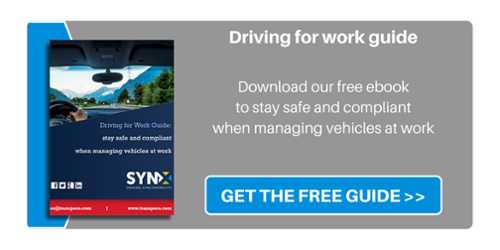
When discussing health and safety as it applies to fleets, the roadworthiness of vehicles and the procedures in place to meet legal obligation, we invariable touch on the ‘duty of care’ that employers have vis-à-vis their employees. It’s an important subject and something we should explain further. What is it, exactly?
What is ‘duty of care’? From a legal perspective, ‘duty of care’ is the idea that an individual or organisation takes reasonable measures to ensure that no harm comes to anyone as a consequence of their actions. More specifically, from a business sense, an employer has a ‘duty of care’ to their employees—there is a legal obligation to safeguard employees as far as possible from unreasonable or foreseeable loss or injury. If we reflect on this concept for a moment and how it might apply to a fleet operation, it will seem quite apparent to most of us that an operator is responsible for their employees’ wellbeing during work and that of the general public with whom they come into contact. Any failure of this legal responsibility on their part could result in a claim of negligence, fines and prosecution. It cannot therefore be emphasised enough how crucial it is for operators to observe proper safety checks on all their vehicles, carry out meaningful risk assessments and make health and safety an ongoing priority.
What happens with fleets and vehicles? From the point of view of the law, although a vehicle is mobile, it is more or less considered an extension of the work place. As such, the rules regarding health and safety in the workplace apply equally to a vehicle if used for work. If you take into account that 25% of road traffic accidents involve vehicles being driven for work purposes, we can see how big an issue this is for fleet operators.
Who is responsible? To a large extent it is the driver who is legally responsible for the safety of the vehicle, that it is properly maintained and the manner in which it is driven, but that doesn’t mean the employer is not also liable for the vehicle and the driver. ‘Duty of care’ still applies and can be carried out in a number of ways, such as educating drivers on potential dangers by means of risk assessments, providing them with the appropriate manuals and leaflets to refer to, training them to operate safely and how to conduct proper walkaround checks, ensuring vehicles are regularly serviced and maintained and also checking that drivers are good to go, that their licences are legitimate for the work they are expected to do and accident management is effective.
What happens in the event of an accident? As we alluded to earlier, if an employee driving in a work capacity is involved in a preventable accident, the company may also be considered liable. This is why ‘duty of care’ cannot be deferred or ignored if a potentially serious prosecution for negligence is to be avoided.
How is ‘duty of care’ understood according to British and Irish law? The UK Health and Safety at Work Act 1974 stipulates that employers have a “duty to ensure so far as is reasonably practicable the health, safety and welfare at work of all employees”. The Management of Health & Safety at Work Regulations 1999 obliges employers to make comprehensive risk assessments of possible injury to employees or members of the public as a result of a company’s business activity; inform employees of any identifiable risks; provide the necessary training to recruits on how to minimise risk, or whenever an employee’s responsibility changes, and ensure that training is kept up as frequently as necessary.
The Irish Safety, Health and Welfare at Work Act, 2005, infers that it has always been a common law duty for employers to provide as safe a place of work as practicable. In light of this, employers are legally expected to provide the five following measures: safe systems of work, machinery that is safe and fit for purpose, a safe place of work, training and supervision, a duty of care in the selection of fellow employees.



